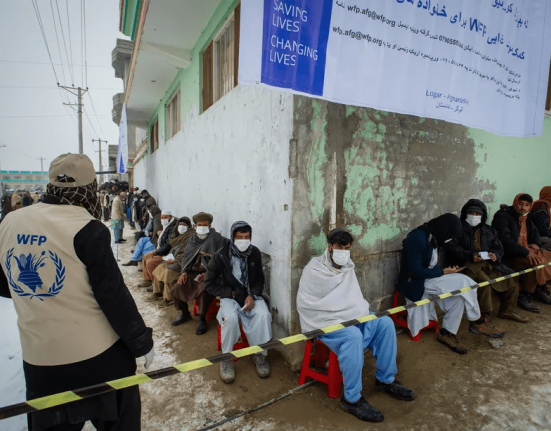By : Daniel W. Drezner , The Washington Post
Over the past quarter-century, the United States has taken steps to exploit its centrality in global capital markets to advance its foreign policy interests. In the late 1990s, there were efforts to combat financial abuse via money laundering. After Sept. 11, 2001, came the crackdown on terrorist financing.
The 2005 sanctions against Banco Delta Asia so roiled North Korea that U.S. officials took notice of their newfound financial power. This led to the enhanced financial sanctions placed on Iran in 2010. Those measures had significant multilateral support. When the United States reimposed the Iran sanctions in 2018, however, it was able to block Iran’s access to Western financial markets, to the protestations of every other great power. The United States has essentially forced everyone to witness the firepower of its fully operational machinery of coercive financial statecraft.
When the Taliban took over Afghanistan in August, Afghanistan’s central bank had deposits greater than $7 billion in the New York Federal Reserve branch. At the time, many observers noted that this gave the Biden administration financial leverage over the new regime. As Afghanistan’s humanitarian situation continued to worsen, the awkward question of what the Biden administration would do with those frozen funds persisted. Without recognizing the Taliban as the new rulers, what could the United States do with those funds?
That questioned was answered Friday. The White House issued an executive order “to Preserve Certain Afghanistan Central Bank Assets for the People of Afghanistan.” The order will take $3.5 billion and use those assets “for the benefit of the Afghan people and for Afghanistan’s future pending a judicial decision.”
Sounds like the right thing to do, yes? Some outlets covered it as such. Except that word “certain” in the previous paragraph is doing a lot of work. It turns out that the Biden White House has different plans for the other $3.5 billion. The federal government will seize those assets to compensate a small group of 9/11 victims.
In fairness to the Biden administration, they are navigating in legal waters not of their own making. Arianna Rafiq provides an excellent legal explainer, as does Erin Farrell Rosenberg, of why the Biden administration is making this move.
In essence, a group of 9/11 families secured a default judgment against the Taliban as a nonsovereign entity a decade ago. At the time it was viewed as a largely symbolic ruling. After the Taliban’s takeover of Afghanistan last year, however, this same group of families went after the central bank’s assets held in the New York Fed. Using some bizarre logic, a federal district court ruled that because the Taliban now controlled Afghanistan, the plaintiffs could go after the frozen assets — even though the United States does not recognize the Taliban as the lawful rulers of Afghanistan (and even if they did, Afghanistan was not named as a sovereign defendant in the initial lawsuit).
The New York Times’ Charlie Savage explains that in the wake of this legal thicket “the White House’s National Security Council led months of deliberations on the central bank funds involving top officials from departments including Justice, State and Treasury.” The resulting executive order is an attempt by the Biden administration to preserve at least some of these funds for the Afghan people.
The procedural means through which the administration plans to follow through on this, however, hints at the legal farce requiring this move to work. According to Savage:
It is highly unusual for the United States government to commandeer a foreign country’s assets on domestic soil. Officials are said to have discussed a two-part legal process for Mr. Biden to engineer that outcome.
First, in his executive order on Friday morning, he used emergency powers under the International Emergency Economic Powers Act to consolidate all Da Afghanistan Bank assets in the United States in a segregated account at the Federal Reserve Bank of New York. That has blocked them, but the Afghanistan central bank still owns them.
Second, officials have discussed then using a provision of the Federal Reserve Act that permits disposing of property belonging to the central bank of a foreign nation — so long as it has the blessing of someone the secretary of state has recognized as being “the accredited representative” of that foreign country.
But deciding who qualifies as such a person, at a time when Afghanistan’s former government no longer exists, has raised significant complications. It remained unclear what solution Biden administration officials had settled on and whether the name of any person or people they deem as such would be disclosed for security reasons, like possibly endangering family members still in Afghanistan.
In seizing more than 40 percent of Afghanistan’s hard currency reserves — including a half-billion dollars of private bank assets required by law to be deposited into the central bank — the United States is taking a bad financial situation and making it worse. As Rafiq notes, “to the extent that the State was found liable and international law rules on reparation were given attention, reparation should be limited. If ever a case against crippling compensation could be made, it is here.”

It is not politically popular to declare that it is wrong for the federal government to take funds potentially available to the Taliban and give them to the families of those who died on Sept. 11. Stripped of legalese, Biden is proposing to divert Afghanistan state funds to help grieving citizens. The United States poured hundreds of billions of dollars into a fruitless effort at Afghan state-building; some Americans will not begrudge clawing some of that taxpayer money back.
None of that, however, changes the precedent of this move. The United States government is looting assets legally held by another sovereign government to reward its own citizens. If another country pulled this move — and another country might be tempted to try it using this case as precedent — it would be viewed as outright theft. It makes it much easier for other great powers to act in a similarly imperial manner.
The short-term implications of U.S. actions will be to free up some funds for humanitarian assistance in Afghanistan. The longer-term implication is to give other countries yet another reason to resent and fear the United States weaponization of the dollar. Because no matter what legal rationale is being provided, the federal government is stealing Afghanistan’s money.
















